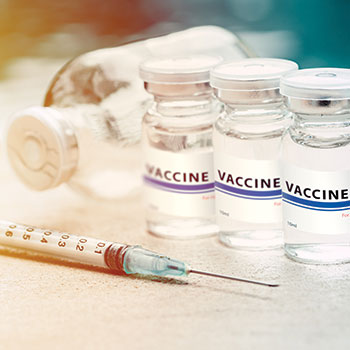Oral drug for postpartum depression approved
This column reviews recent recalls, alerts, and approvals.
Recalls and warnings
A class I recall of Cardiosave Hybrid and Rescue Intra-aortic Balloon Pumps (IABPs) because they may unexpectedly shut down due to failures in the printed circuit board assembly in the charging path. If this occurs, the device may lose the ability to charge batteries in one or both battery bays/slots.
A class I recall of Dräger Carina Sub-Acute Care Ventilators to address possible contamination of the breathing gas with 1,3-Dichloropropan-2-ol, a constituent of the foam used for sound insulation. No complaints relating to this problem have been reported, but standard tests conducted by the manufacturer measured concentrations of 1,3-Dichloropropan-2-ol above the acceptable uptake level during continuous use for longer than 30 days in pediatric patients.
A class I recall of the labeling for Impella RP Flex with Smart Assist System Catheter because the catheters' instructions for use do not appropriately address precautions to take when treating patients with an anticoagulation clotting time below the recommended value. The use of affected catheters may cause serious adverse health consequences including formation of blood clots or particle deposits, or death. Patients with central venous lines and cardiac cannulas with systemic anticoagulation below 160 to 180 seconds are most at risk. Clinicians may continue to use the devices but should take steps to minimize risk of thrombus formation or deposition. There have been 12 reported injuries and no reports of death.
A recall by Lupin Pharmaceuticals of two lots of drospirenone, ethinyl estradiol and levomefolate calcium tablets, 3 mg/0.03 mg/0.451 mg, and levomefolate calcium tablets, 0.451 mg (Tydemy), due to out-of-specification results at the 12-month stability time point. One lot tested low for ascorbic acid (an inactive ingredient) and high for a known impurity. No adverse events have been reported, but a significant reduction in the amount of inactive content could potentially impact the effectiveness of the product and result in unexpected pregnancy.
A class I recall of Baxter's SIGMA Spectrum Infusion Pumps due to increased reports of false alarms for upstream occlusion after pump software upgrades. False upstream occlusion alarms cause interrupted or delayed therapy and contribute to clinician fatigue, which may cause serious adverse health consequences, especially for people receiving life-sustaining medications. A manufacturer representative will contact facilities to determine the correction plan and schedule a software reversion for all affected pumps at no charge.
An alert to patients not to use Dr. Berne's MSM Drops 5% Solution and LightEyez MSM Eye Drops-Eye Repair due to bacterial contamination, fungal contamination, or both. The FDA conducted sampling and testing based on these products' intended use in the eyes, which showed the products were contaminated with microbes and were not sterile.
A warning to patients not to use a number of tests manufactured by Universal Meditech Inc., which has notified the FDA that it has stopped all operations and is no longer providing support for its tests. The FDA is therefore not able to confirm the performance of the tests, raising concerns that they may not be safe and effective. These include tests for pregnancy, ovulation, urinary tract infections, and ketones, sold under the names One Step, HealthyWiser, PrestiBio, and others.
Miscellaneous
Together with the Drug Enforcement Administration (DEA), the FDA recently provided an update on the ongoing actions being taken to resolve the shortages of prescription stimulant medications. The agencies note that shortages are due to a combination of factors, including a manufacturing delay experienced by one drugmaker, record-high prescription rates of stimulant medications, and manufacturers' failure to produce the full amount of medication permitted by the DEA. The DEA has called on manufacturers to confirm they are working to increase production or, if not, to relinquish their remaining allotment for 2023. The FDA is asking health care groups and professionals to accelerate efforts to support appropriate diagnosis and treatment of attention-deficit/hyperactivity disorder (ADHD). The agency notes that nonstimulant and nondrug options for improving ADHD symptoms have been approved in recent years.
Approvals
A new indication for Abrysvo, a respiratory syncytial virus (RSV) vaccine, for use in pregnant individuals to prevent lower respiratory tract disease caused by RSV in infants from birth through six months of age. The vaccine is approved for use at 32 through 36 weeks of gestational age of pregnancy and is administered as a single-dose injection into the pregnant individual's muscle. In May, the FDA approved the vaccine for the prevention of lower respiratory tract disease caused by RSV in individuals 60 years of age and older.
Zuranolone (Zurzuvae), the first oral medication indicated to treat postpartum depression in adults. Efficacy is based on two trials of postpartum women who met criteria for a major depressive episode with symptoms beginning in the third trimester or within four weeks of delivery. At two weeks, patients who received the drug showed significantly more improvement in symptoms than those on placebo, with the treatment effect maintained four weeks after the last dose. Zuranolone carries a boxed warning about the potential impact on a person's ability to drive and perform other potentially hazardous activities; patients should not drive or operate heavy machinery for at least 12 hours after taking the medication. The most common side effects include drowsiness, dizziness, diarrhea, fatigue, nasopharyngitis, and urinary tract infection. Use of the drug may cause suicidal thoughts and behavior or fetal harm.
Cantharidin (Ycanth) for the topical treatment of molluscum contagiosum in adult and pediatric patients 2 years of age and older. The FDA recently alerted consumers that there are no other FDA-approved treatments for molluscum. Approval was based on two trials in which patients received the drug or placebo at 21-day intervals until bumps were completely cleared or for a maximum of four applications; 54% of those receiving cantharidin achieved complete clearance of all treated bumps by day 84 compared to 13% of those on placebo. The most common adverse reactions included blistering, pain, itching, scabbing, reddening, discoloration, dryness, edema, and erosion of the skin. Life-threatening toxicity can occur if it is administered orally.
Clearance of the V-PRO maX 2 Low Temperature Sterilization System for the sterilization of 3D printed devices in health care facilities. It is the first FDA-cleared sterilization system with a specialty cycle that can effectively sterilize surgical instruments such as patient-specific surgical guides (e.g., osteotomy, shoulder, hip, knee, and spine) and anatomical models that are fabricated via 3D-printing processes and intended for a single use during a procedure.
Clearance of the Deka Ace Pump System for people 13 years of age and older with diabetes. The prescription-only device is an alternate-controller-enabled (ACE) pump that delivers insulin under the skin and can be used as a stand-alone insulin pump or along with other diabetes devices that are also designed to be integrated into a customizable diabetes management system for automated insulin delivery.
Marketing authorization for the Revi System for treatment of symptoms of urgency incontinence alone or in combination with urinary urgency. The device consists of an active implantable wireless neurostimulation component intended to be placed in the vicinity of the tibial neurovascular bundle for peripheral nerve stimulation.
Marketing authorization for the Viz HCM to identify patients ages 18 years or older for further follow-up for hypertrophic cardiomyopathy (HCM). The stand-alone device can analyze recordings from compatible 12-lead electrocardiograms (EKGs), detect signs associated with HCM, and allow the user to view the EKG and software analysis. The device does not provide a diagnosis of HCM and is not intended for use on patients with implanted pacemakers.
Palovarotene (Sohonos) capsules, the first treatment for fibrodysplasia ossificans progressiva (FOP) to be used in adults and children ages 8 years and older for females and 10 years and older for males. Safety and effectiveness are based on mostly open-label clinical studies that enrolled a total of 164 subjects with FOP, a rare disease where connective tissue such as muscle, tendons, and ligaments gradually turn into bone tissue, causing limited movement, deformities, and severe disability. The most common adverse reactions were dry skin, dry lips, arthralgia, pruritis, pain in extremity, rash, alopecia, erythema, headache, back pain, skin exfoliation, nausea, musculoskeletal pain, myalgia, dry eye, hypersensitivity, peripheral edema, and fatigue.
Melphalan for injection/hepatic delivery (Hepzato Kit), a liver-directed treatment for adult patients with uveal melanoma with unresectable hepatic metastases affecting less than 50% of the liver and no extrahepatic disease, or extrahepatic disease limited to the bone, lymph nodes, subcutaneous tissues, or lung that is amenable to resection or radiation. It carries boxed warnings for severe periprocedural complications, including hemorrhage, hepatocellular injury, and thromboembolic events and myelosuppression with resulting severe infection, bleeding, or symptomatic anemia, and is available only under a Risk Evaluation and Mitigation Strategy (REMS).
Two separate drugs, elranatamab-bcmm (Elrexfio) and talquetamab-tgvs (Talvey), for adults with relapsed or refractory multiple myeloma who have received at least four prior lines of therapy, including a proteasome inhibitor, an immunomodulatory agent, and an anti-CD38 monoclonal antibody. The drugs received accelerated approval but carry boxed warnings about life-threatening or fatal cytokine release syndrome and neurologic toxicity, including immune effector cell-associated neurotoxicity, and are available only under REMS.
Niraparib and abiraterone acetate (Akeega) in a fixed-dose combination with prednisone, for deleterious or suspected deleterious BRCA-mutated castration-resistant prostate cancer.
Dostarlimab-gxly (Jemperli) with carboplatin and paclitaxel, followed by single-agent dostarlimab-gxly, for primary advanced or recurrent endometrial cancer that is mismatch repair deficient or microsatellite instability-high.
First-time generic drug approvals
Saxagliptin, alone and in combination with metformin hydrochloride, an adjunct to diet and exercise to improve glycemic control in adults with type 2 diabetes. (Brand names: Kombiglyze and Onglyza)
Plerixafor injection, in combination with granulocyte colony-stimulating factor, to mobilize hematopoietic stem cells to the peripheral blood for collection and subsequent autologous transplantation in patients with non-Hodgkin's lymphoma or multiple myeloma. (Brand name: Mozobil)
Ponatinib to treat adult patients with chronic myeloid leukemia. (Brand name: Iclusig)
Ertugliflozin as an adjunct to diet and exercise to improve glycemic control in adults with type 2 diabetes. (Brand name: Steglatro)
Oxcarbazepine extended-release to treat partial-onset seizures in patients 6 years of age and older. (Brand name: Oxtellar XR)
Naltrexone for extended-release injectable suspension to prevent relapse to opioid dependence following opioid detoxification. (Brand name: Vivitrol)
Note: The FDA states that drugs are not always commercially available immediately after approval.




